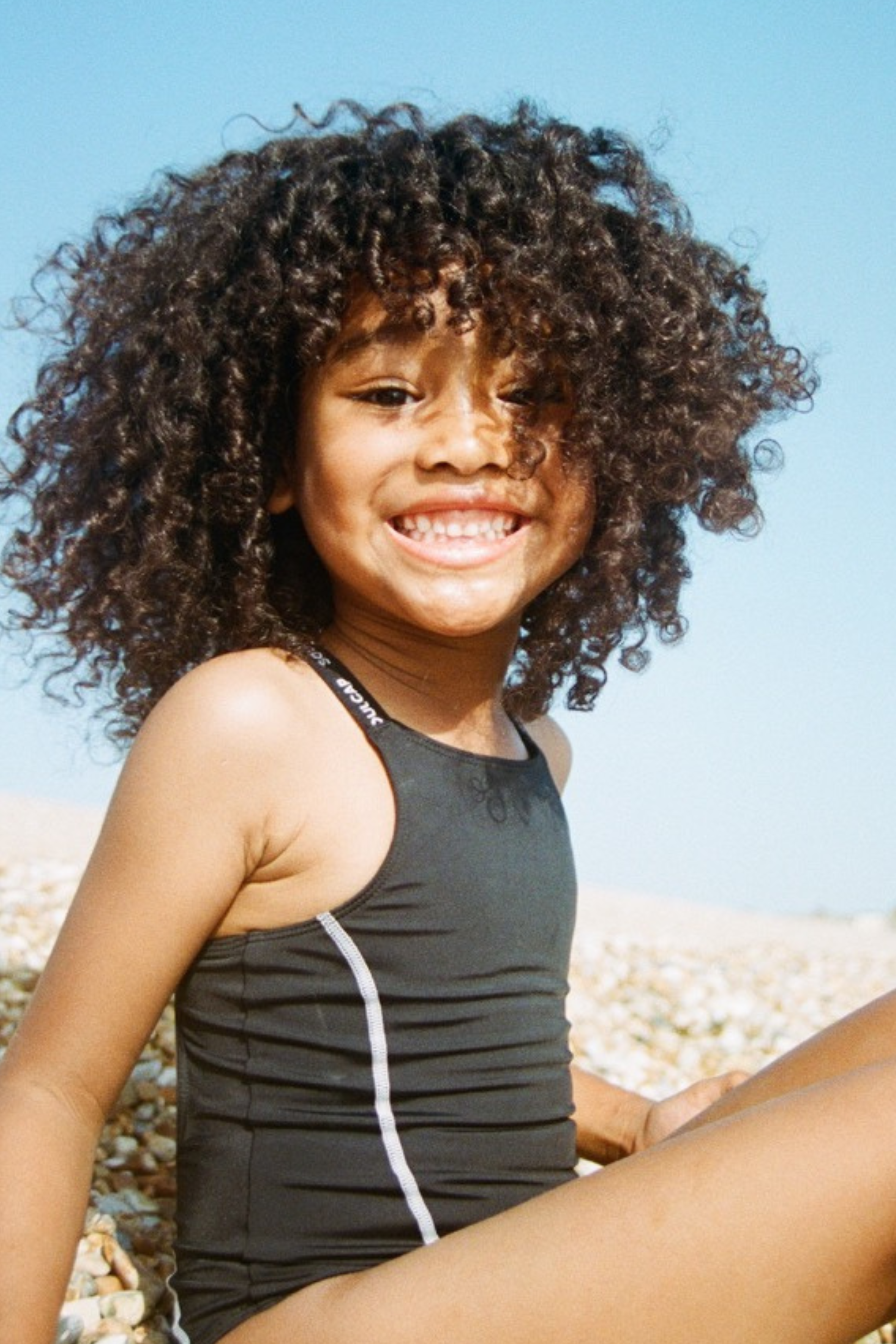I believe we were made to be in the water – and that our connection to the water is so imperative.
From a young age, there were always opportunities for me to learn how to swim at school. My mother always loved swimming, so naturally her passion was passed on to me. I joined a swimming club and started competing at the age of 10. I found a love for open-water swimming, and started training at the Royal Docks in London and attending their yearly Great British Swim events.
At first, the relationship I had with swimming wasn’t easy – for lots of reasons. Mostly, it was because I felt like I stood out from the students I was swimming with at school. There wasn’t anyone in the water who looked like me, and certainly no one with as much big curly hair as I had.
But as soon as I started to swim, all the thoughts of paranoia and fear disappeared. I still remember the feeling of winning my first race. It wasn’t about what I looked like: it was about learning something, and then becoming good at it.
That’s what I loved about swimming, and what still pushes me to swim now. That when something is tough at first, you’ve got to keep trying – and that these moments help us to learn new skills and overcome boundaries. When it hurts, that’s when you know your body and mind is getting stronger, and it shows us how strong we can be.
Swimming taught me that the more we step out of our comfort zones, the more fearless we are – and the more we can achieve. Still to this day, every time I swim, the daily stresses and anxiety wash away.
I feel empowered. I feel in control, and I feel free.
Over the years, I still noticed that it was rare to see anyone who looked like me in the pool – especially in open water spaces.
When I would speak to my friends about my love for swimming, it became apparent how many of my peers didn’t swim, or even understand the benefits of swimming.
It saddened me to think that there were so many people like me who didn’t swim, and were missing out on not only a skill, but the many benefits swimming has.
This made swimming more than just a passion for me: it became a mission.
It became important for me to show up in these spaces and share my experience – to help inspire others to swim and become a part of the swimming community.
I first heard of SOUL CAP through the Black Swimming Association (BSA) – who as well as SOUL CAP, focus on diversifying the UK’s aquatic sector.
It was inspiring to see their swimming caps featured in the new Bel-Air TV series by Will Smith – represented on mainstream television by people of colour. It feels like we’re seeing more awareness and acceptance around inclusivity in the water, and the normalisation of swimmers from all communities.
On top of that, we’re seeing SOUL CAP being stocked in mainstream retailers like Decathlon in the US.
It all feels like a huge step in the right direction – towards making swim caps more accessible for everyone, and banishing the idea that some hair types aren’t meant for the water.


